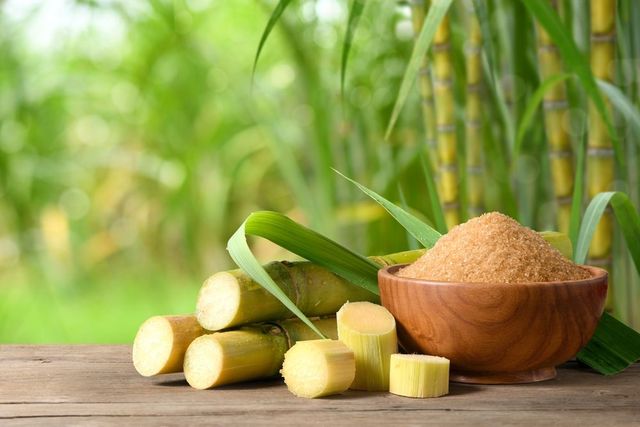Maximizing Sugar Manufacturing With Effective Walking Stick Sugar Handling Chemicals
The optimization of sugar production via the critical use of walking stick sugar processing chemicals is an important location of focus for producers aiming to enhance return and top quality. As the sector advances, what cutting-edge techniques and arising patterns will shape the future of sugar processing?
Importance of Handling Chemicals
Handling chemicals play a vital function in the production of walking cane sugar, boosting both effectiveness and high quality throughout the manufacturing process. These chemicals are used at various phases, consisting of filtration, removal, and explanation, to enhance the return and purity of the end product - sugar and cane. By assisting in the failure of plant cell wall surfaces, refining chemicals make sure a much more reliable removal of sucrose from sugarcane, thereby enhancing general production efficiency
Furthermore, the use of handling chemicals aids in the elimination of pollutants such as dirt, waxes, and non-sugars that can negatively influence the high quality of the sugar. This causes an extra crystal-clear and polished product, which is crucial for satisfying sector standards and consumer assumptions. Additionally, these chemicals can assist maintain the sugar during storage, protecting against deterioration and maintaining its high quality with time.
The calculated application of handling chemicals likewise adds to environmental sustainability by lowering waste and improving source efficiency. By optimizing extraction prices and decreasing impurities, producers can achieve higher success while sticking to ecological regulations. Generally, the relevance of processing chemicals in walking stick sugar manufacturing can not be understated, as they are essential for achieving optimum cause both return and high quality.
Kinds of Cane Sugar Handling Chemicals
A selection of chemicals are used in the handling of walking cane sugar, each serving certain features to improve production effectiveness and product quality. Among one of the most usual kinds are making clear representatives, which include lime and phosphoric acid. These chemicals help get rid of contaminations and promote the explanation of juice throughout the removal procedure.
An additional critical category includes coagulants and flocculants, such as polyacrylamide and jelly, which help in the load of put on hold bits, therefore improving the filtration of sugar juices. In addition, sulfur dioxide is regularly made use of as a whitening agent, assisting in the elimination of colorants while maintaining the preferred taste profile.
Acids, like acetic and citric acid, are crucial for pH change, advertising ideal conditions for chemical reactions and enhancing total sugar recuperation. Antifoaming representatives, such as polydimethylsiloxane, are used to mitigate foam formation during boiling processes, making sure smooth operations.

Advantages of Effective Chemical Usage
Making use of chemicals properly in walking cane sugar processing yields significant advantages that enhance both production efficiency and product high quality. The appropriate use handling chemicals can cause boosted extraction rates, permitting producers to take full advantage of the return from raw walking stick sugar. Boosted extraction not only reduces waste however also maximizes resource utilization, adding to set you back financial savings.
Furthermore, reliable chemical application help in the explanation and filtration stages, leading to a higher-quality final result. This is important for meeting customer assumptions and governing standards, as impurities can impact preference, shade, and general marketability. Making use of specific flocculants and clarifying representatives can expedite the elimination of pollutants, making sure a clearer syrup and, inevitably, granulated sugar.
Additionally, the best chemicals can enhance the security of the sugar during storage and transportation, decreasing the risk of wasting and preserving top quality. This stability is essential for keeping product honesty in an open market. Overall, the calculated application of processing chemicals not only simplifies operations yet likewise boosts the end product, making sure that producers can supply premium cane sugar efficiently and sustainably.

Finest Practices for Application
Implementing finest practices look at here now for the application of chemicals in walking cane sugar handling can substantially maximize results and enhance overall effectiveness. It is crucial to conduct a detailed evaluation of the sugarcane quality and the particular processing requirements to establish the ideal chemical solutions. This customized strategy makes sure that chemicals are utilized effectively and decreases waste.
Appropriate dose is one more crucial element; adherence to manufacturer standards is important in achieving desired end results without over-application, which can result in negative ecological effects and increased prices. Routine calibration of application tools is essential to make sure precise distribution and uniform insurance coverage of chemicals.
Furthermore, timing of application plays an important role. sugar and cane. Chemicals should be used at ideal stages of the processing cycle, such as throughout extraction or clarification, to optimize their effectiveness. Monitoring the handling conditions, consisting of temperature and pH degrees, can even more enhance chemical performance
Last but not least, training workers on security procedures and operational treatments is indispensable. By cultivating a culture of safety and conformity, facilities can minimize dangers related to chemical handling while ensuring ideal chemical application for improved sugar return and top quality.
Future Fads in Sugar Handling
As the walking cane sugar industry evolves, several future patterns are poised to reshape processing techniques and improve sustainability. One substantial fad is the boosting adoption of automation and electronic innovations, which simplify procedures and enhance performance. Advanced analytics and artificial intelligence formulas can maximize handling specifications, causing lowered waste and greater sugar returns.
Additionally, the combination of sustainable energy sources into sugar handling centers is on the rise. Utilizing biomass energy from sugarcane byproducts not just decreases the carbon impact however likewise lowers operational costs. This change straightens with international sustainability objectives and improves the market's durability against rising and fall power rates.

In addition, the formulation of greener processing chemicals is gaining traction. Producers are developing naturally degradable and safe choices that preserve efficacy while minimizing ecological influence - sugar and cane. This pattern not just addresses regulatory stress but additionally satisfies customer demands for lasting practices
Verdict
The efficient application of walking cane sugar processing chemicals is indispensable to maximizing sugar manufacturing. By utilizing making clear representatives, enzymes, and flocculants, manufacturers can considerably boost extraction prices and improve juice clearness, ultimately leading to higher returns and remarkable product high quality. Following ideal practices in chemical use not only promotes sustainability and lowers waste however also placements producers to satisfy advancing market criteria. Continuous advancement and adaptation in handling techniques will certainly be important for future advancements in sugar manufacturing.
:max_bytes(150000):strip_icc()/ms-sugar-getty-cfed0662acca49f7b6e52c593767dfb9.jpg)
Comments on “Sugar and Cane: Exploring Their Role in Traditional and Modern Cuisine”